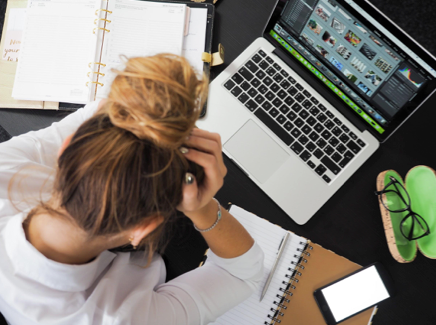Have you ever noticed how the environment around you affects your productivity, concentration or health?
We won’t believe it if you say that mess and clutter help you stay happy and focused while performing everyday tasks. Numerous studies show that clean working space and the generally clean and organized living area may lead to a number of positive effects on your life.
For example, one study revealed that women felt depressed if their homes were in renovation or just messy and, on the contrary, women who considered their houses orderly and restful had much lower levels of cortisol.
Another positive influence may be seen in people’s physical activity, and overall health – the ones who keep their places clean tend to be healthier and more active generally.
We guess even this bit of information can make you think of starting decluttering as soon as possible. If you are still in doubt, try to check the research that states the following: “People who keep their spaces decluttered tend to spend less and are able to save a lot more money.” Who wouldn’t like to improve the financial situation, right?
But how to start? For many people, the very idea of reorganizing the whole living and working space may cause stress. Luckily, there are enough tips and tricks that may be handy in your decluttering journey.
One of the strategies is to use Marie Kondo’s approach, which is a world-famous way to fix your life with the help of In her book, she suggests 6 steps that can help you to get started and we’ll kindly enumerate them for you:
- Make a habit of tidying up
- Have an image of your perfect lifestyle
- Be meaningful about the things you get rid of
- Tidy by category, not location
- Try to be orderly
- Ask yourself if the item sparks joy
She also suggests categories to tackle that will help to stay on track: clothes, books, papers, “komono” known as miscellaneous items and sentimental items.
Following Marie’s method will actually turn cleaning into discarding the items that don’t serve any function in your house.
- If the method above sounds overwhelming and you are not ready to jump into reading the whole book, there are other ways to start the decluttering journey. Try to start by filling one garbage bag – it can be some clothes that you don’t wear anymore because they are small or just old. Make a list of places/rooms in your house that need reconsideration and start the clean-up following the list. You may even take pictures of your house/apartment to see from a different perspective which places actually require decluttering.
- Another big concern that beginners have is the lack of time especially if you are a student with neverending classes, seminars, and written assignments. But think about it carefully: you have no time for cleaning and find yourself being stressed because of the mess around you and you become even less productive – it’s a vicious circle! You must find time for changing your life for better. Ask your mom/dad, sister/brother, girlfriend or boyfriend to do the grocery or cook dinner, buy a speech that you have to write for college or take the day off work – do anything that can save you some time and help to take action towards better health and productivity. A bit of effort and external assistance can make a huge difference.
- Another useful piece of advice we can give you is not to freak out. Don’t go too far with the cleaning – there’s no need to get rid of all or the most part of your things just because you decided to declutter. Be wise, think thoroughly and keep the items from any category that you use/wear all the time (most times) or the ones that really “spark joy” © Marie Kondo. Also, don’t get upset if the whole reorganization of your living area turns out to be more difficult than it could seem first. Just take your time and with the small steps you’ll reach the goal.
- Last, but not least, ask yourself the most important question: how to be sustainable and not to get back to a total mess? Pretty obvious, but still – be mindful. When buying new clothes item or a pen, a notebook you name it, ask yourself a number of questions: Do I need this or do I want this? Will it serve me any function? Do I already have anything similar at home? Will it bring me joy or satisfaction on a long-term basis? Only having answered these questions make a final decision. When coming home from university or work, don’t leave your stuff all around the house just because you’re exhausted. If you put the clothes to the wardrobe, hang the keys on the hook and leave the papers in order, it will save you much more time the next day which is equal to less stress and more productivity.
Hopefully, you’ve found something useful in the article and are motivated enough to get started following the life of a healthy, mindful and productive person.


You must be logged in to post a comment Login